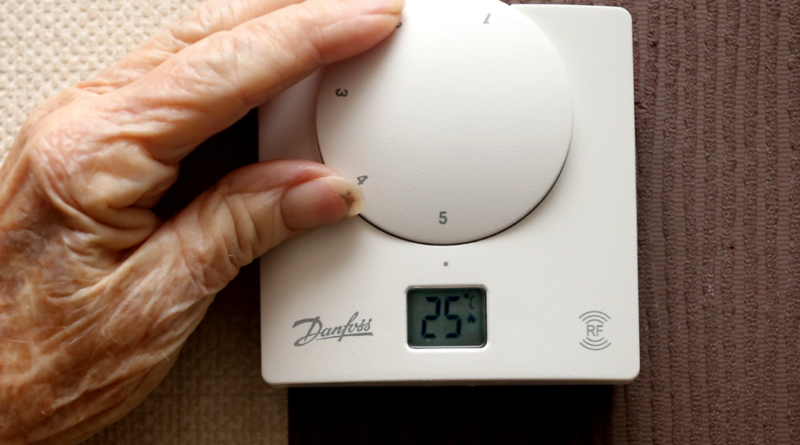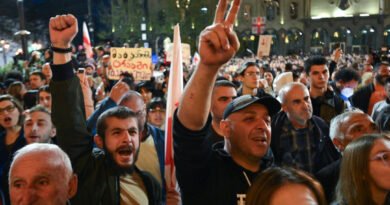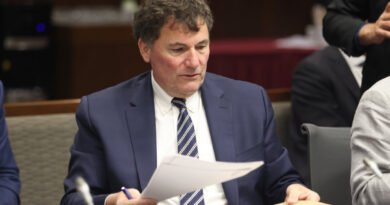By 2027, Winter Fuel Reductions May Push 100,000 Pensioners Below Poverty Line
Liz Kendall emphasized that the figures are solely a result of the policy change and do not consider efforts to boost Pension Credit uptake.
An estimated 100,000 additional pensioners may fall into relative poverty by 2027 due to the government’s decision to reduce Winter Fuel Payments, according to the Department for Work and Pensions (DWP).
This number will remain consistent in 2026, rise to 100,000 in 2027, drop to 50,000 in 2028, increase to 100,000 in 2029, and then stabilize at that figure in 2030.
Households in relative poverty have an income less than 60% of the national average.
Chancellor of the Exchequer Rachel Reeves terminated universal access to the Winter Fuel Payment support—valued at up to £300—restricting it to those claiming Pension Credit from this winter onwards in an attempt to save £1.5 billion annually.
Pensioners ‘Will Be Better Off’
In her letter to Debbie Abrahams, the Labour chairwoman of the Work and Pensions Committee, Kendall clarified that the annual figures are not cumulative, and these estimates are rounded to the nearest 50,000.
Kendall added that these figures are only a result of the policy change and do not consider the government’s efforts to increase Pension Credit applications.
“Efforts are being made to encourage entitled pensioners to claim Pension Credit, with a 152% increase in applications due to a successful campaign,” Kendall mentioned.
She further stated, “Additional financial assistance, such as the £150 Warm Home Discount, Cold Weather Payments, and the extension of the Household Support Fund, have been introduced to aid the most vulnerable households, including pensioners with energy bills.”
At the G20 summit in Rio de Janeiro, Brazil, Prime Minister Sir Keir Starmer assured that pensioners would benefit from other initiatives implemented by the Labour government.
Starmer highlighted, “Next year’s state pensions will increase by about £470 under the triple lock, as we have stabilized the economy.”
Poverty Line
Critics have urged the government to assess the impact of Winter Fuel Payment changes on pensioners’ ability to stay warm, especially for those just below the poverty line who are not eligible for Pension Credit.
Commenting on these figures, the chairwoman of the Work and Pensions Committee remarked: “While we appreciate the government’s transparency, there are unresolved concerns regarding the impact on older or disabled pensioners, with no mention of those hovering close to the poverty line.”
Abrahams added, “We are particularly concerned about how the reduction of winter fuel payments will affect poorer pensioners, and we will closely monitor the situation.”

Liz Kendall leaving 10 Downing Street after being appointed Work and Pensions Secretary, in London, on July 5, 2024. Lucy North/PA Wire
Shadow work and pensions secretary Helen Whately expressed, “Finally, the truth is revealed, and we see the ramifications of Labour’s Winter Fuel Payment cuts.
“Their actions will push 100,000 pensioners into poverty in the coming years.
‘Not Clear’ How This Will Save Money
In her letter, Kendall concluded, “The decision to means-test Winter Fuel Payments was not what we wanted or expected. However, we had to make tough choices to address the £22 billion shortfall inherited.
“Given the dire state of public finances, it’s necessary to direct support to those in greatest need while working to stabilize the economy for long-term support to pensioners, which has enabled us to fulfill our triple lock commitment.”
Last month, the SSAC wrote to the DWP highlighting, “The savings from the reduced Winter Fuel Payments eligibility are offset by the increase in Pension Credit claims and the resources required to process them.”
“Resolving the conflicting goals of fiscal savings and increased Pension Credit uptake within these regulations is unclear,” noted the SSAC.
PA Media contributed to this report.





